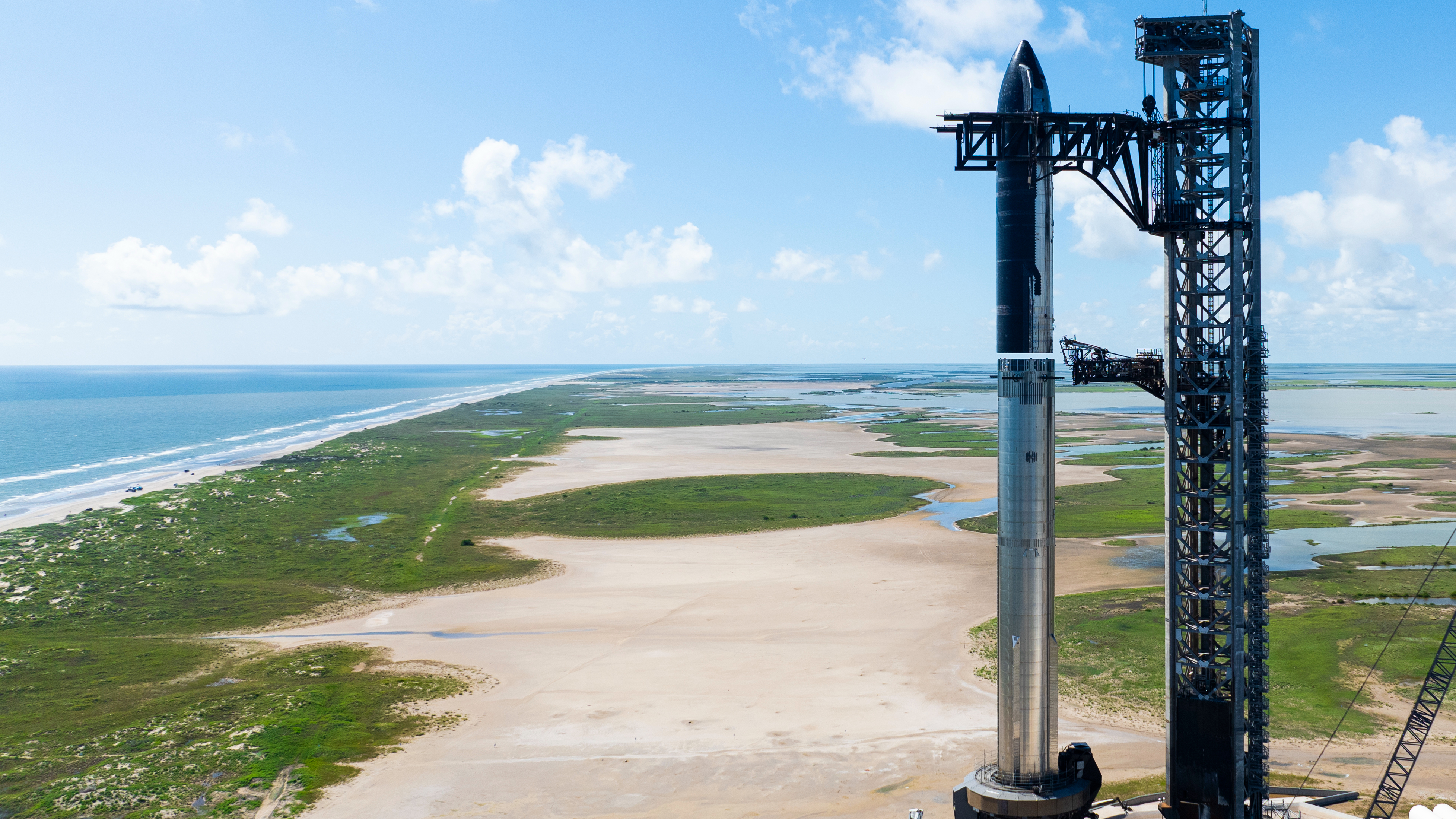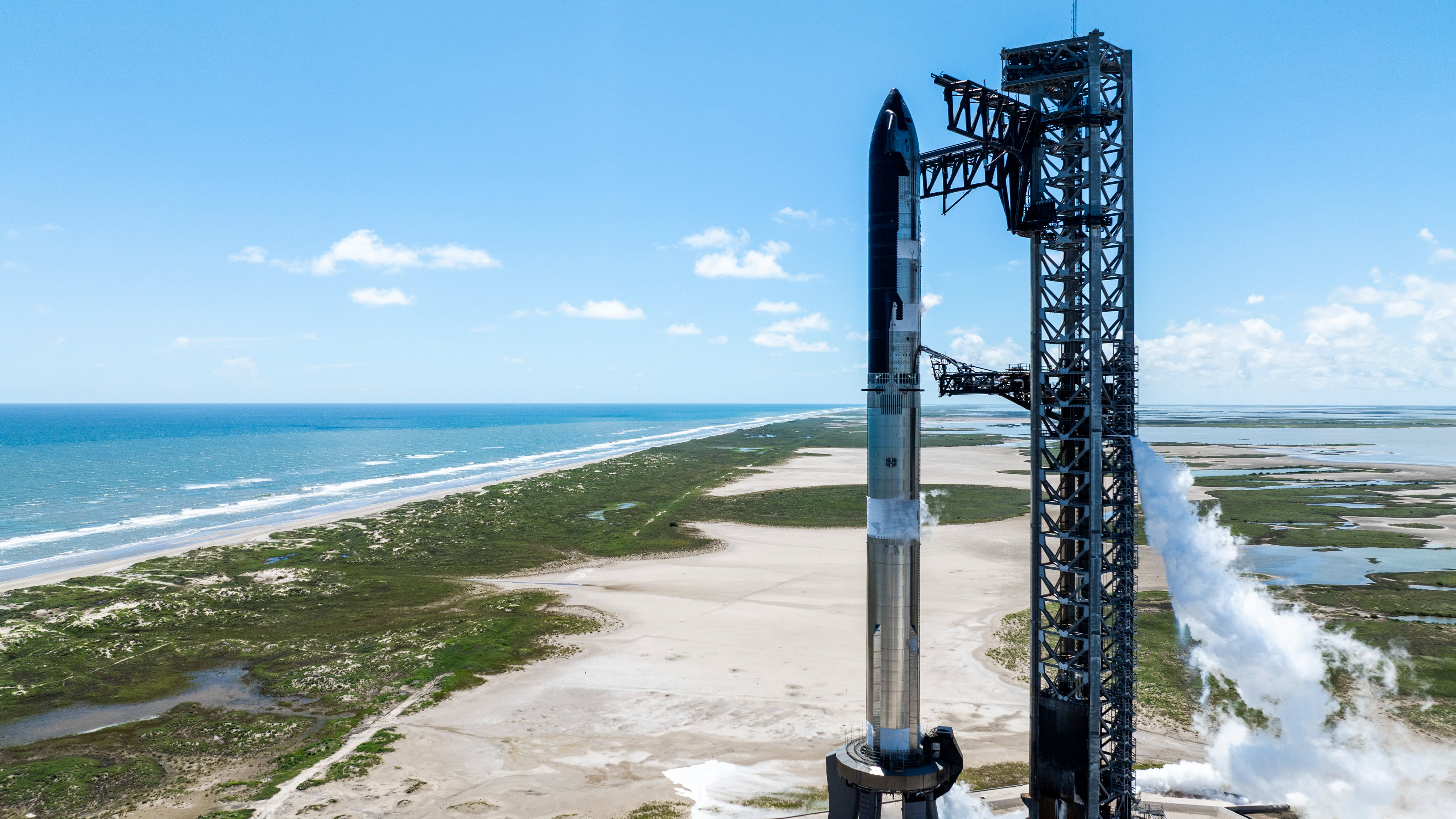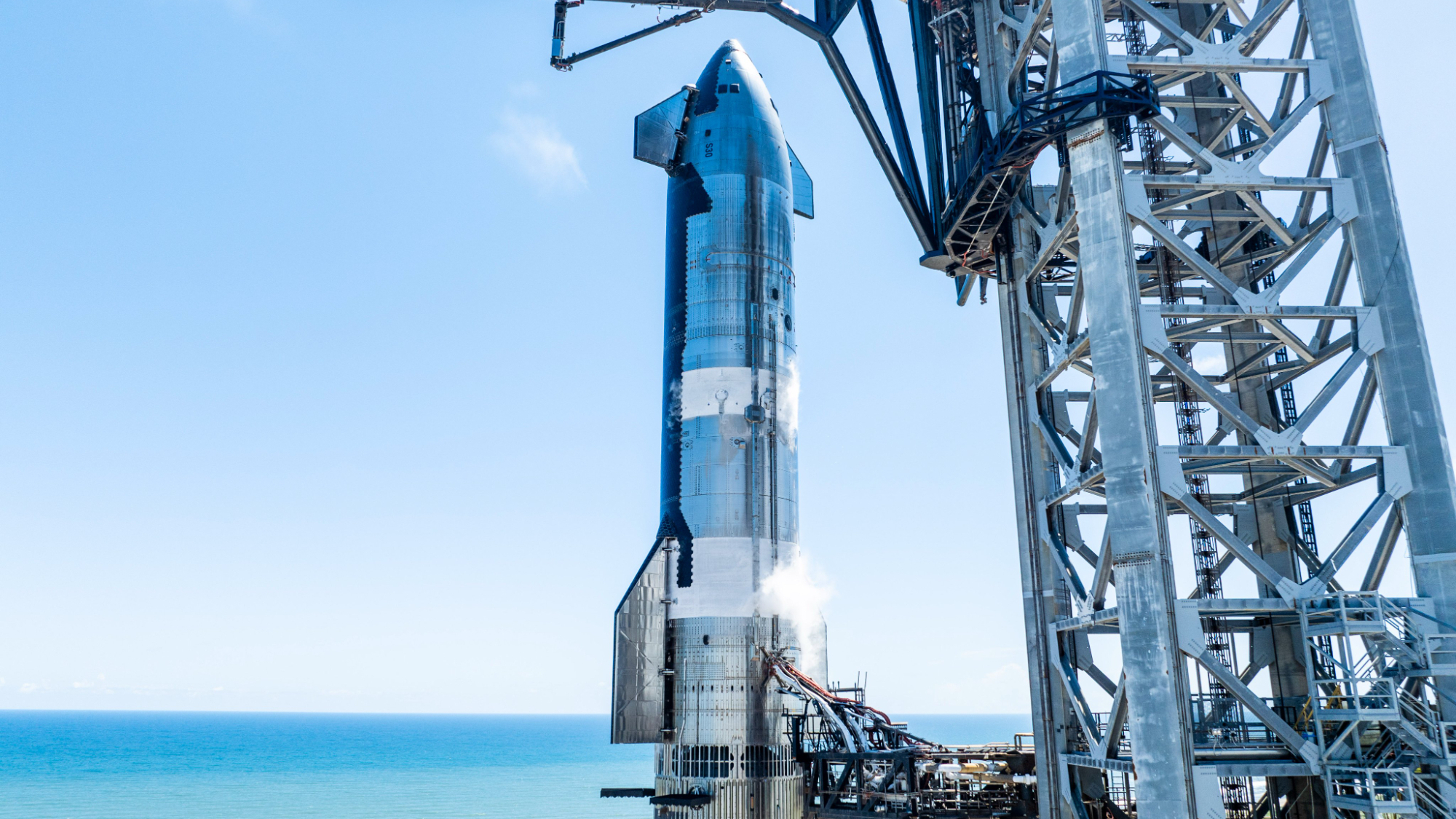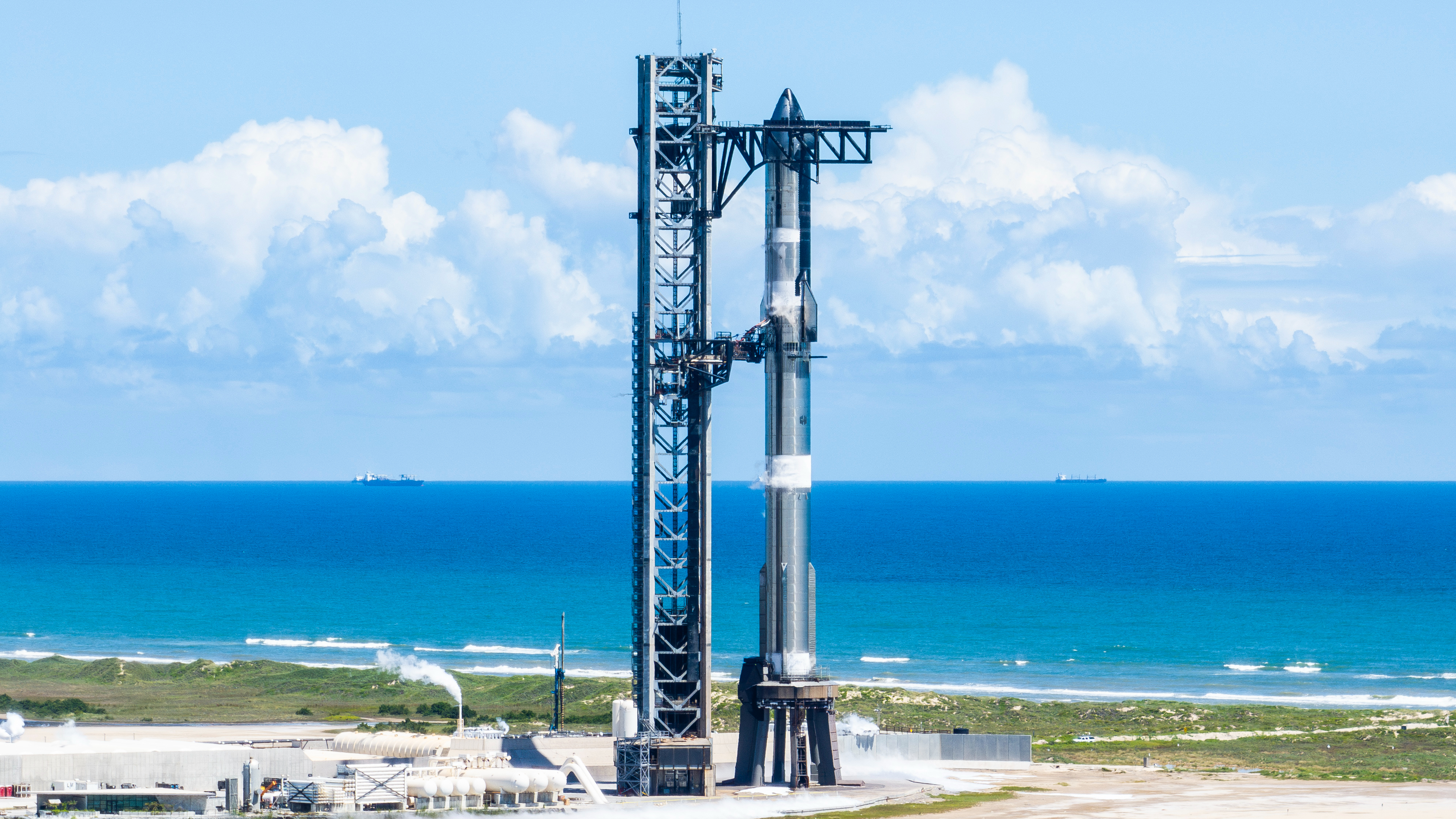
SpaceX has stacked its Starship megarocket ahead of the vehicle's fifth test flight, which isn't expected to launch until late November.
SpaceX announced the stacking on Saturday (Sept. 21) in a post on X that featured four photos of the operation, which took place at the company's Starbase site in South Texas.
"Starship stacked for Flight 5 and ready for launch, pending regulatory approval," SpaceX wrote.

SpaceX did some prep work with the stacked vehicle, which it wrapped up two days later.
"Propellant load test and preflight checkouts complete ahead of Flight 5," the company wrote in a Monday evening (Sept. 23) X post, which shared three more photos of the vehicle.

SpaceX stacks Starship using the "chopstick" arms of the launch tower at Starbase, which lifts both elements of the vehicle — the Super Heavy first-stage booster and the upper-stage spacecraft, called Starship or just "Ship" — onto the orbital launch mount.
When these two stages are joined, Starship stands about 400 feet (122 meters) tall. It's the biggest and most powerful rocket ever built — brawnier than NASA's Saturn V moon rocket as well as its successor, the Space Launch System.
Starship's four test flights lifted off in April and November of 2023 and March and June of this year. SpaceX is eager to launch Flight 5, but it still needs to secure approval from the U.S. Federal Aviation Administration (FAA), which grants launch licenses.
The FAA is still assessing the potential environmental impacts of the coming launch and reviewing modifications to the Starship vehicle and mission plan that SpaceX made after Flight 4. FAA officials have said they expect this work to be done in late November.
Related: SpaceX's Starship won't be licensed to fly again until late November, FAA says

SpaceX and its founder and CEO, Elon Musk, aren't happy about this timeline. Earlier this month, the company published a long blog post called "Starships Are Meant to Fly," which claimed, among other things, that the FAA moves too slowly and is stifling innovation in the American launch sector.
"The more we fly safely, the faster we learn; the faster we learn, the sooner we realize full and rapid rocket reuse," SpaceX wrote in the post. "Unfortunately, we continue to be stuck in a reality where it takes longer to do the government paperwork to license a rocket launch than it does to design and build the actual hardware. This should never happen and directly threatens America's position as the leader in space."







